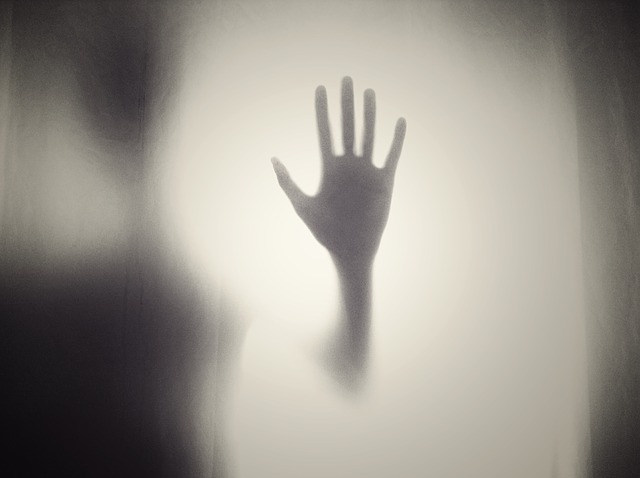March 19, 2019
How to Write a Good Horror Story
A good horror story fascinates most of us. There’s something attractive about feeling a bit of fear in a controlled, safe manner. This also explains the lasting relevance of Gothic fiction. In today’s article I’ll show you how to write a good horror story.
I’ll start with a brief outline of what a horror story is (and what are the differences between a horror story and a Gothic fiction story). I’ll then tell you what are the secrets of a successful horror story, and how to make sure to include them in your own text.

First Things First: What is a Horror Story
Before we talk about how to write a good horror story, we must first know what a horror story is. At first, this might sound ridiculous. “Surely,” you might say, “a horror story is a story that scares us.”
This is not an inaccurate description. But, once again to borrow from my article on horror, the Gothic, fantasy, and science fiction, the ontological layers are different, and so are the narrative dynamics.
In simpler words, a horror story must be one where the sense of fear originates from the supernatural. Think of The Exorcist, much of Lovecraft’s work, or Poltergeist.
Can you feel fear (indeed, horror) from works without the supernatural? Absolutely. Think of The Silence of the Lambs or Alien. The former is crime fiction, the latter is science fictionOf course the success of Alien is partly due to its ambiguity in regard to the aesthetics involved. Although strictly speaking there is nothing supernatural about the aliens - they are simply alien life forms - they are presented as demonic, hence alluding to supernatural origins.
Compare the kind of fear felt in Alien to, say, Solaris, where much of the fear anxiety felt is related to psychological elements..
How to Write a Good Horror Story: Understand the Basic Building Blocks
We have already talked about two of these building blocks:
- The Supernatural
- Ambiguity
Before we talk about other building blocks, let’s expand a bit on these, because their subtle hues are crucial.
The Supernatural in a Good Horror Story
A successful horror story, at least if your goal is to replicate some of the works seen further above, has to lean heavily toward the supernatural.
Can you have a horror story where everything is explained as, say, madness? The answer must be no.
Can you have a story where there is a mild, weak, or antagonistic attempt to explain everything as madness (or illusion, or anything of the sort)? Yes, with caution.
In other words, you can have a character (typically someone antagonizing or trying to undermine the protagonist, i.e. antagonist or opponent) suggesting that whatever the protagonist has been experiencing is a result of madness, illusion, ignorance, or anything of the sort – and not ghosts, goblins, demons, or monsters, as the protagonist believes.
This is a very common trope in horror fiction, and you should make sure to understand it well. Keep in mind, however, that the protagonist must be right in the end, and the ontological foundation of fear/horror must be supernatural in origin.
Ambiguity in a Good Horror Story
If you’re perceptive, you have probably already understood a bit about ambiguity. In our context, ambiguity facilitates the introduction of suspense. At first it’s not clear whether the protagonist is “seeing things” or not.
Overall, ambiguity is an element that is good to have in any story, and certainly in horror fiction. But remember: the outcome cannot be ambiguous, otherwise you risk drifting into other territories; that is to say, into other genres, such as Gothic fiction or fantasy. Let me adapt from my Gothic versus science fiction versus horror article again and give you a handy list:
Is your enemy…
a supernatural entity and there’s no doubt about it? If the entity is treated as supernatural and you fear it, then you’re dealing with horror fiction. If the entity is not treated as supernatural, you’re dealing with fantasy: “there are orcs and goblins, so what?”
a previously unknown entity, but one the presence of which can be explained in some natural way? Then you’re dealing with science fiction.
an unknown entity and you’re unsure what’s going on (including whether you have not gone insane)? Then you’re dealing with Gothic fiction.
Of course, this is only one facet of what it means to deal with science fiction, fantasy, horror, or the Gothic.

What’s important if you want to learn how to write a good horror story, is to remember that it needs to fit certain patterns. Which brings us to the third building block.
Generic Conventions and Audience Expectation in a Good Horror Story
Reading so far, you might wonder whether it is not a sign of originality to mix-and-match genres. After all, if all plots have already been devised, originality exists elsewhere, right?
Not quite.
The idea to, say, indefinitely extend ambiguity might sound like a nice one. Let’s assume that you decide to create a horror story with a demon or a malevolent spirit, leaving however the door open for it all to be a result of the protagonist’s frail mental state.
Believe it or not, the result will be exactly the opposite of what you intended. Your audience will feel a sense of transgression, an uncanny uncomfortable feeling of anxiety, but they will not feel fear.
It would be a story closer to Gothic fiction, which is precisely predicated on ambiguity, but it will not be a pure horror story. More still, it won’t even be a pure Gothic story, as it will probably lack a series of tropes the audience expects to find in Gothic fictionTo name a few, off the top of my head: a commentary on religion and ethnicity or gender and sexuality, elements of mind and memory, and a propensity for self-reference..
And so, my advice would be this: if you’re writing genre fiction, such as horror stories, stick to what the audience expects.
A Horror Story Is about Causing Fear; of a Specific Kind
To make someone scared with your writing is relatively easy. But if you’re after writing a successful horror story, there are specific things to consider.
In this article I tried to outline the most important such elements. The list is not exhaustive, but it should be a good start.
In conclusion, the most important thing to keep in mind is to understand the genre you write in. If you’re after the effect found in Lovecraft or King, the style and tropes you should use are vastly different compared to, say, Dracula or American Psycho. Breaking the rules can be interesting and productive, but before you break them successfully you must first make sure you recognize and understand them.
Comments are closed for posts older than 90 days